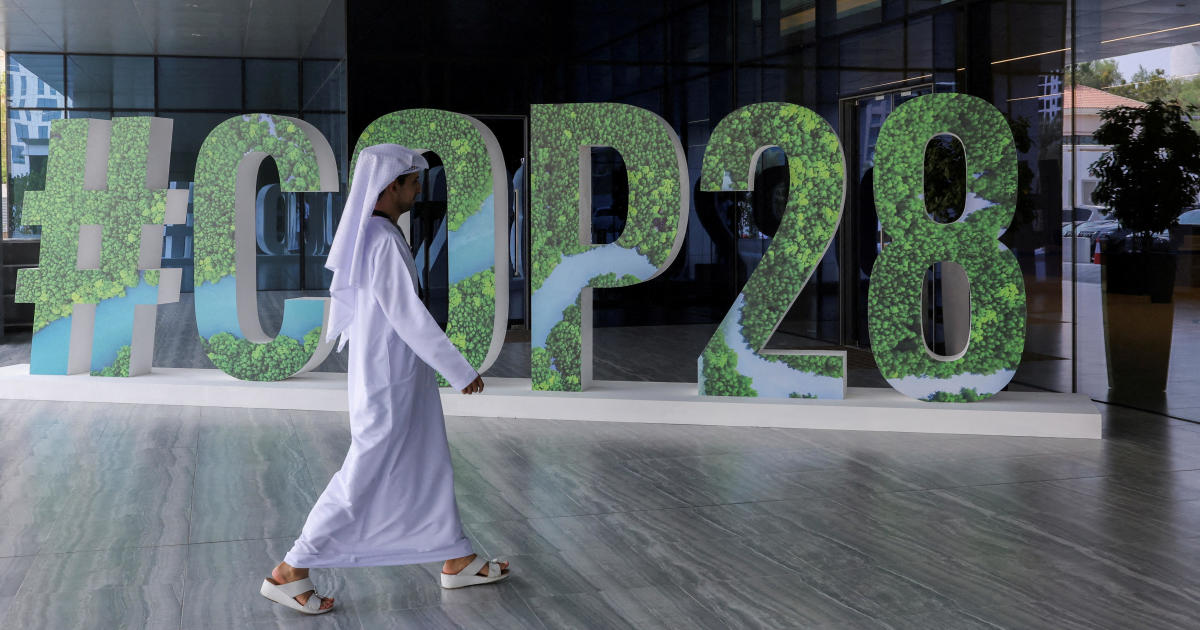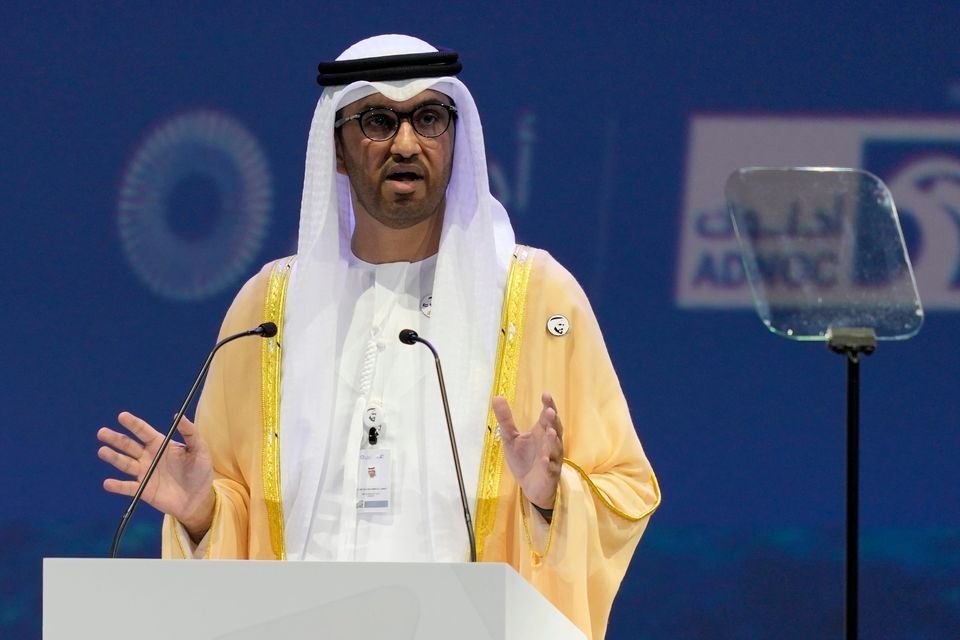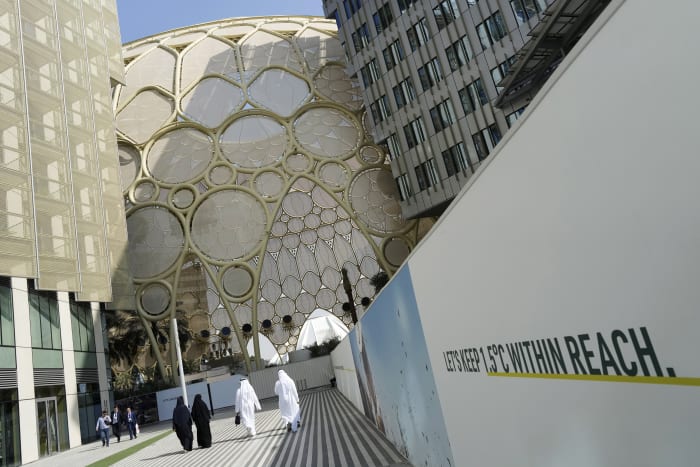Leaked documents show UAE effort to push fossil fuel deals amid leadership of global climate summit
Leaked documents show that fossil fuel pushes were among “potential discussion areas” for the United Arab Emirates, ahead of this year’s global climate summit in Dubai.
The documents were obtained by the Centre for Climate Reporting and their release comes just days before the start of the summit known as COP28, which runs from Nov. 30-Dec. 12.
The Centre worked with the BBC to verify the authenticity of the documents, which were leaked by a whistleblower. It reports that they include briefings prepared by the COP28 team for meetings held by Sultan Al Jaber, who will lead the global climate conference.
The documents, some of which were posted online, list talking points for discussions with world leaders. Many of the potential discussions the documents lay out include points pertaining to the state-owned Abu Dhabi National Oil Company (ADNOC).
A page pertaining to China states that “we are willing to jointly evaluate international [liquified natural gas] opportunities” and particularly mentions Mozambique, Canada and Australia.
The documents, some of which bear the logo of the global climate conference, also say the state oil company “has identified Brazil as a strategic country for investment,” and that securing an endorsement “at the highest level” for a potential deal to buy a Brazilian petrochemical company “is important for us.”
The documents also list as potential discussion points the UAE’s openness to LNG trading with Mexico and the state oil company’s eagerness to expand existing trade with Kenya.
They say the UAE is eager, through both ADNOC and state-owned renewable energy company Masdar, to support Azerbaijan as “a secure energy hub for Europe, exporting natural gas and potentially clean electricity.”
A spokesperson for the COP28 conference said the documents “were not used by COP28 in meetings” but declined to answer a question from The Hill about how the documents were used.
“It is extremely disappointing to see the BBC use unverified documents in their reporting,” the spokesperson said via email.
Al Jaber is ADNOC’s CEO, making his appointment to lead the conference controversial. He is also the chairman of the board of directors of Masdar, the renewable energy company.
U.S. climate envoy John Kerry is among the diplomats listed, but the document does not appear to discuss a fossil fuel expansion in reference to him or the United States.
Instead, it pushes for renewables funding in the U.S., saying “we hope to have the support of the administration for a waiver of approvals on Masdar’s participation in future joint project applications for [Department of Energy] grant funding of industrial decarbonization proposals.”




/cloudfront-us-east-2.images.arcpublishing.com/reuters/FIGEI2JZWFLRFBCOPQMAHFOPHI.jpg)


:quality(70)/cloudfront-us-east-1.images.arcpublishing.com/cmg/EZXLLC6DIGLJHORPKJIRJBQPBA.jpg)










